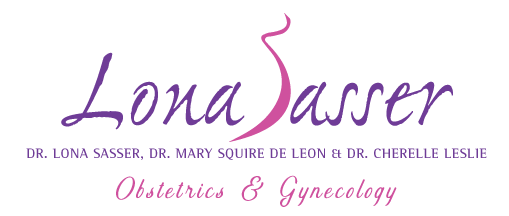Experiencing urinary incontinence after childbirth is more common than you think – and you can do something about it
If you are discovering that it’s harder to hold your bladder after giving birth, you are not alone. Urinary incontinence after childbirth is very common. It’s estimated that about half of women experience urinary leakage after giving birth, and its most common among parents who delivered their baby vaginally. But there are strategies to help you get back control over time.
At Dr. Lonna Sasser Obstetrics and Gynecology we are here to support you in your postpartum journey. Your health is our top priority. If you are in the Coral Springs FL area, call us (954) 340-1050 or book online.
Understanding urinary incontinence after childbirth
What is urinary incontinence after childbirth? This term simply refers to the involuntary leaking of urine following pregnancy and birth. Weakened pelvic floor muscles, injury sustained in delivery, or even hormones can all have an ill effect on bladder control following childbirth. Plus, the uterus shrinking to pre-pregnancy size can give the bladder a wallop with its repeated contractions.
There are different types of urinary incontinence, and you might experience either, or both.
Stress incontinence is the leaking of pee when you are coughing, laughing or even sneezing. Leaks can also happen when you are exercising or performing strenuous activities.
Urgency urinary incontinence is that sudden, urgent need to go. It can have you losing bladder control on your way to the bathroom, and once you get the urge it’s hard to stop.
Mixed incontinence combined symptoms of both.
How to address postpartum incontinence
In the majority of cases, urinary incontinence will resolve within a year of giving birth. For some, it passes within a few weeks or months. But for a small percentage of women, it can last much longer, up to five years.
Luckily, there are things you can do to support your healing. Speak with your doctor about what you are experiencing. They may advise you to pursue simple changes like the following to aid your swift recovery.
- While cutting caffeine, carbonated drinks, and alcohol from your diet can help you with postpartum urinary incontinence by reducing your need to “go,” it’s very important that you don’t stop drinking water. This may seem like a solution but it can lead to serious dehydration.
- The Kegel exercises you practiced so diligently to prepare for labor can be a great help in strengthening your pelvic floor muscles and returning your bladder control over time. Your doctor may recommend additional physical therapy depending on what you are experiencing.
- Keeping track with a bladder diary can be the first step to training your bladder. Keep a record for a few days of when you use the bathroom and when you leak urine. If you can find a pattern you may be able to plan trips to urinate in order to avoid leakage. Then you can work on stretching out the time between bathroom trips. By holding on longer, you strengthen your pelvic muscles and increase your control.
- In some cases, there are prescription medications, bladder support devices, or procedures that can help.
Compassionate Care
Dr. Lona Sasser Obstetrics and Gynecology is accepting new patients and would love to hear from you.
Find out why our respected and compassionate doctors are a top choice in Coral Springs and the surrounding areas. Contact us to schedule your appointment today. You can easily book online or give us a call at (954) 340-1050.
Photo by Jonathan Borba on Unsplash

